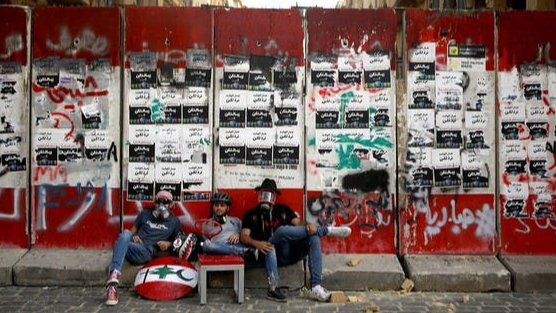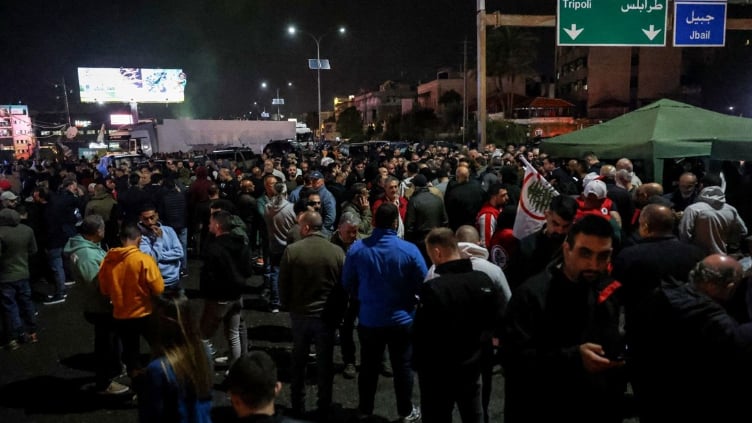Calls for federalism in Lebanon have flourished recently as certain pockets within Lebanese society are fed up the current political system that is based on sectarianism, nepotism and clientelism.
But new calls for a new federalist system in Lebanon are unlikely to succeed because it would simply produce a set of mini states that would not be viable, would likely have contradictory agendas, and would indulge in endless conflicts.
Calls for partition and federalism also flourished during the civil war, especially in the 1980s when militants from various sects succeeded in drawing demarcating lines between the different Lebanese regions along confessional lines. Even the capital Beirut was divided into two parts: east Beirut, mainly inhabited by Christians, and west Beirut, by Muslims.
At the war’s close, when the time came for an internationally sponsored political compromise, all parties – except Hezbollah – handed in their weapons, and the temporary borders that had for years separated areas in Lebanon opened up and citizens moved about freely once again. Life returned to normal sooner than anyone had expected at the time.
And, more importantly, this de facto partition was never institutionalized and formalized in a de jure arrangement.
Today, political arrangements that were set in the Taif Accord of 1989 that ended 15 years of civil war no longer seem viable either as the balance of power has tremendously tilted in the favor of some parties, namely Hezbollah and its allies, at the expense of others.
In the past, this intricate and delicate balance of power has helped maintain relatively adequate processes of decision-making that have kept the country running in one way or another. With the new imbalance, the country has descended into the abyss. Where Lebanon was once famous for its freedom and openness in the region, those freedoms are now diminishing.
Old calls for partition
Even when the regions were divided, calls for formalizing partition of the country were minimal, and those calls rarely had an actual political weight or effect. What mattered were the military operations on the ground carried out by various militant factions and that later all paramilitary groups were dissolved or became part of the state. Militias became part of the state apparatus, and they retained their original roles as political parties.
Where federalism requires national consensus on foreign policy options, in Lebanon, differences over foreign policy have been present since independence in 1943. In fact, the National Pact, which was a verbal compromise between Maronite Christians and Sunni Muslims, was based on a “no East, no West” foreign policy, a policy designed for neutrality. Mutual fears were the reason behind this understanding. Muslims would refrain from calling on Lebanon to be part of Arab unity; in return, Christians would refrain from seeking protection from France and the West.
Though this formula worked for a while, it was not successfully functional on a regular basis. Lebanon has for years been the battleground for regional conflicts because it failed to build local consensus on foreign policy matters.
Does federalism have a chance?
With such deep divisions that led to armed conflicts, will federalism ever have a real chance in Lebanon?
Recent calls for neutrality ignited heated discussions as Hezbollah and its allies rejected those calls. And with neutrality refused, federalism will be even harder to accept.
If foreign policy gives an example on how complicated installing a federal system in Lebanon would be, other areas of consideration are likely to complicate matters further.
How would the federal districts be divided? Would they be along sectarian lines? What happens to the mixed areas that include Christian and Muslim inhabitants? How would the newly demarcated states coexist? If the current central state has tense relations with external players and a state of war with others, would the same relations apply to the different federal state or a state might get to choose to normalize ties with Israel for example, while the other will throw rockets on it and call for the liberation of Palestine?
At the economic level, will those federal states be viable? Do some of them have privileged advantages like a port and airport and the others do not? What about industry, tourism and agriculture?
There are many questions that would have to be addressed should a federalist system be pursued, questions that will not be easy to answer. Federalism would be a recipe for chaos in Lebanon and would further deepen divisions that will pave the way for additional external intervention within these new federal states that would have their own conflicting affiliations. And there would always be a chance that those new states would turn the new federal Lebanon once again into the battlefield of regional proxy wars.
Lebanon is in the midst of unprecedented economic and social difficulties. But those difficulties can be an incentive to reform the current political system, but under a central unified modern state. This state would not differentiate between its citizens according to sectarian affiliations and would introduce civil status laws that give an option for citizens to organize their lives outside the circles of their sects – as many in the street have called for. This state would seek to monopolize power and defend its sovereignty, like any other state.
Lebanon’s collapsing economy must be an incentive for Lebanese citizens to push toward reforms and unity, rather than encourage political divorce. Lebanon’s diversity is to be cherished and strengthened instead of being cursed and weakened.





